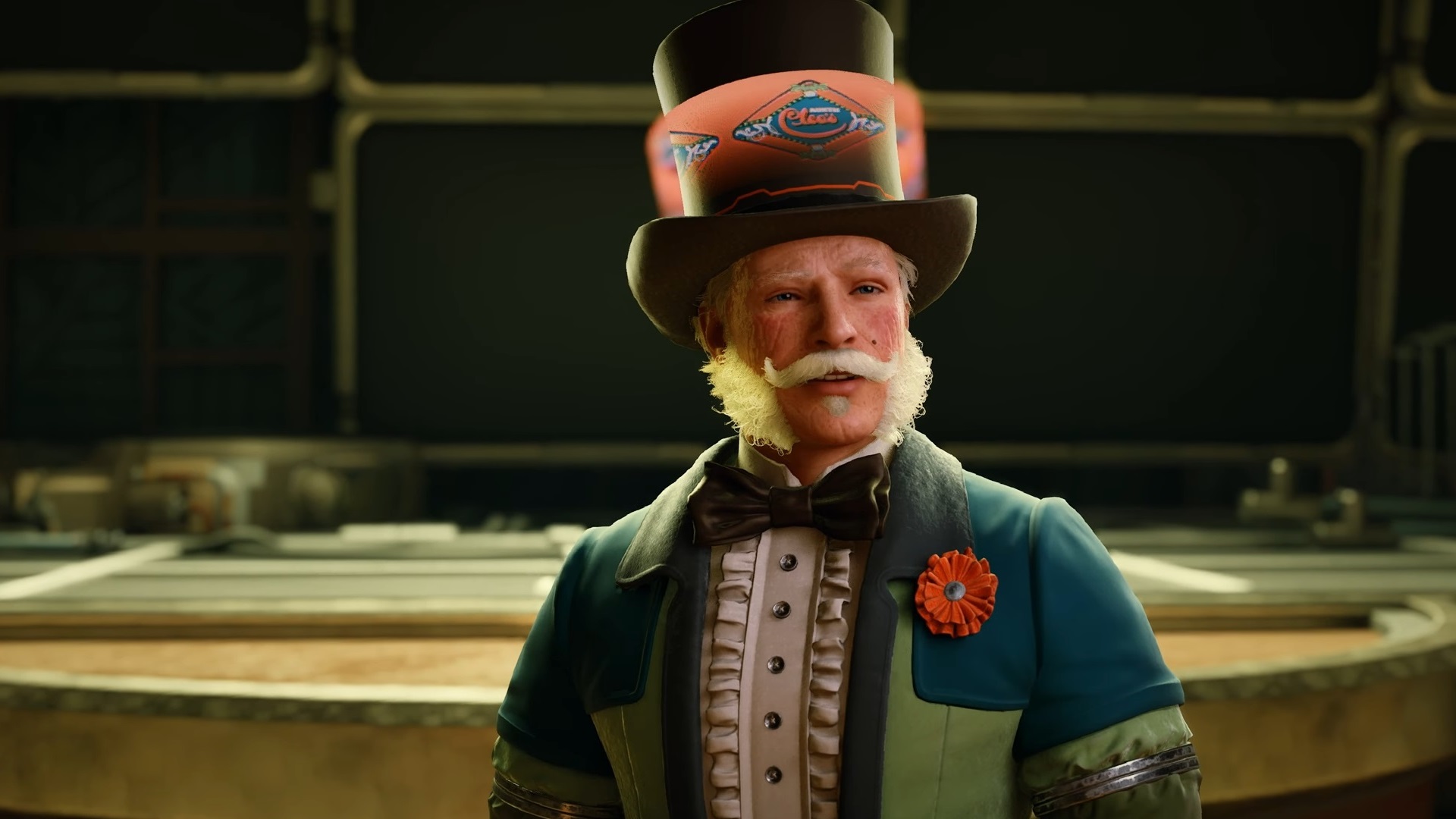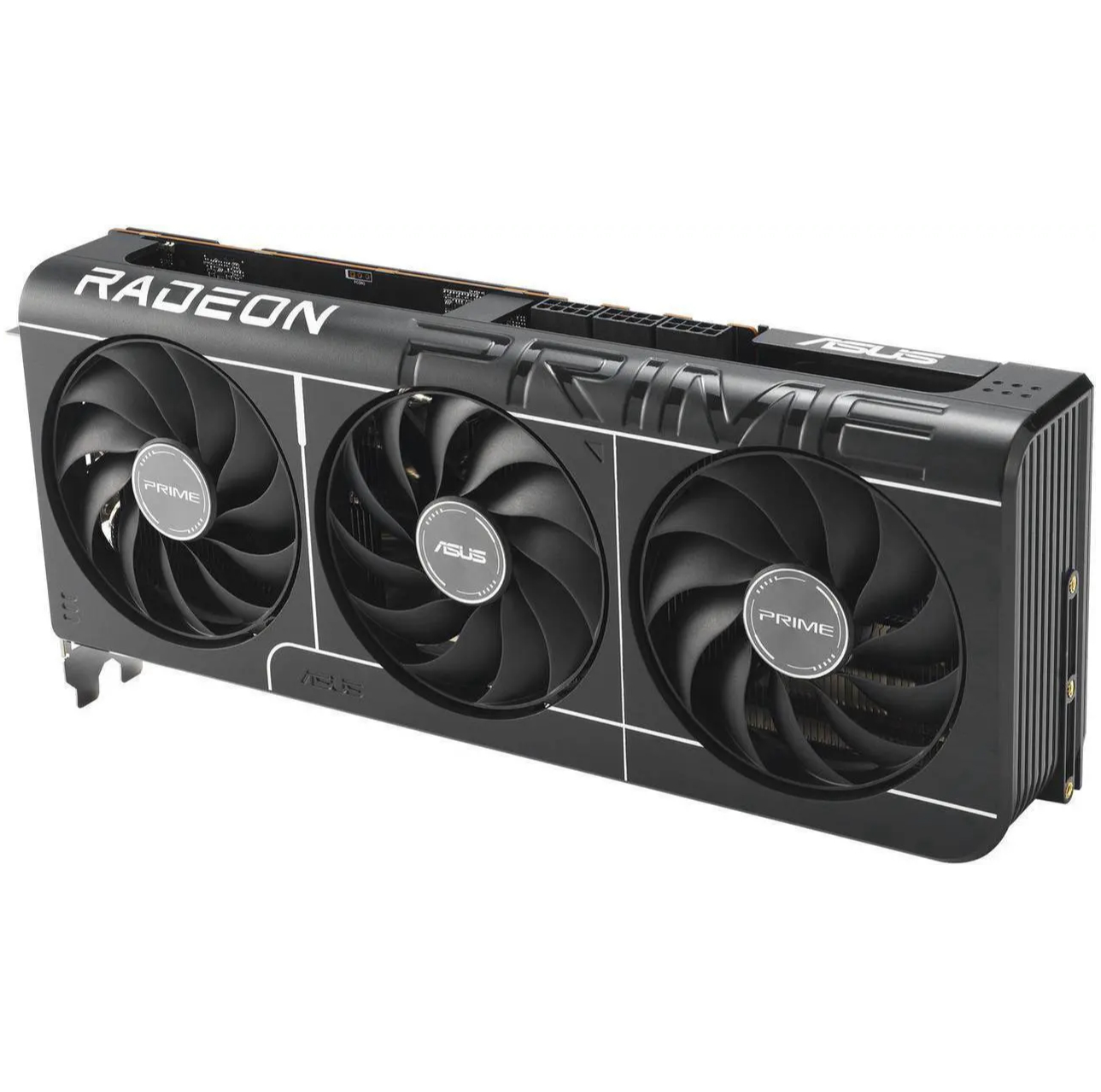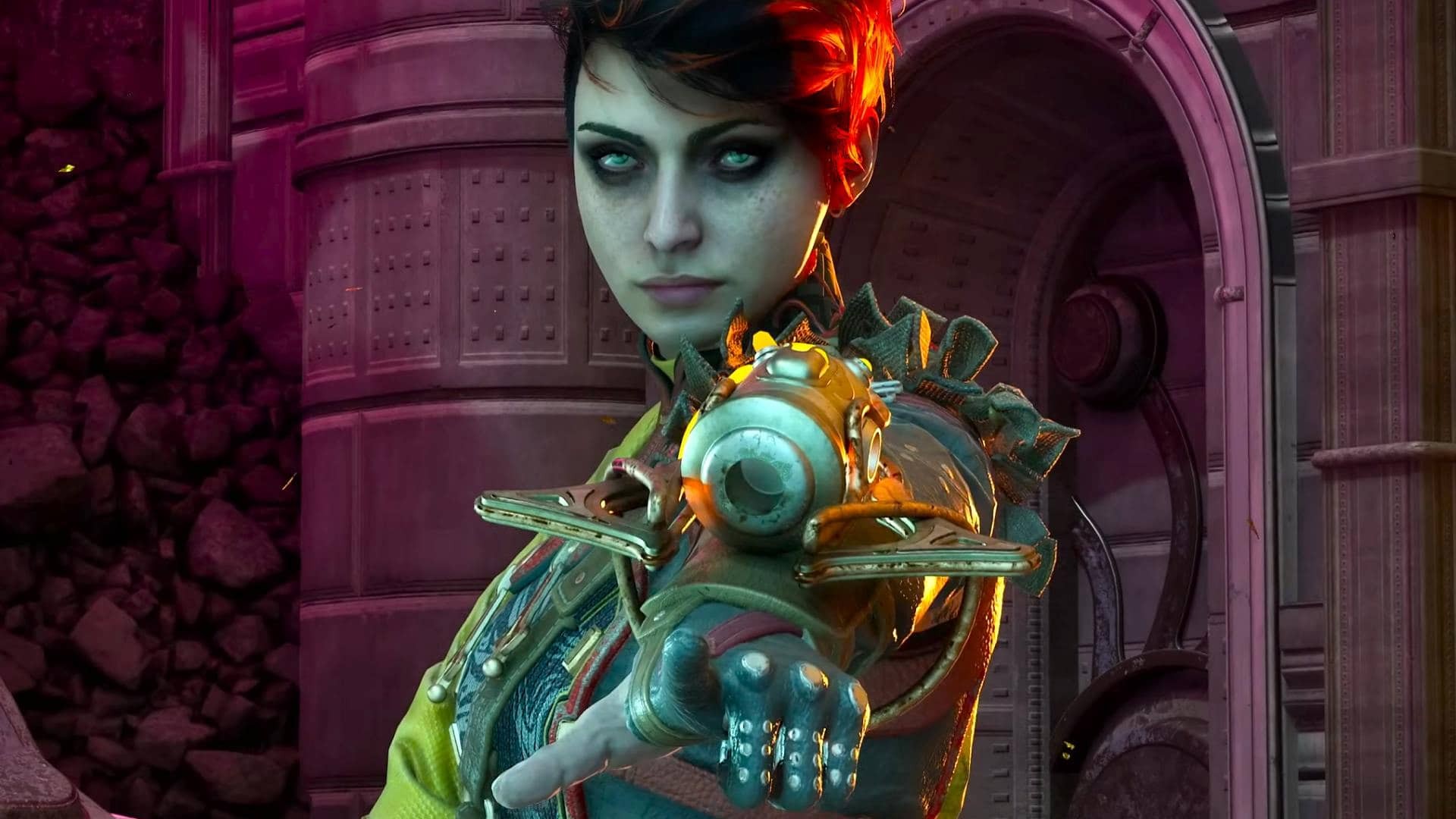Obsidian says The Outer Worlds 2 isn't a deliberate critique of capitalism, which is even more ridiculous than the time Fallout's co-creator said that isn't either
What's better than a thoughtful analysis of history? How about a vague shrug of the shoulders?

Keep up to date with the most important stories and the best deals, as picked by the PC Gamer team.
You are now subscribed
Your newsletter sign-up was successful
Want to add more newsletters?

Every Friday
GamesRadar+
Your weekly update on everything you could ever want to know about the games you already love, games we know you're going to love in the near future, and tales from the communities that surround them.

Every Thursday
GTA 6 O'clock
Our special GTA 6 newsletter, with breaking news, insider info, and rumor analysis from the award-winning GTA 6 O'clock experts.

Every Friday
Knowledge
From the creators of Edge: A weekly videogame industry newsletter with analysis from expert writers, guidance from professionals, and insight into what's on the horizon.

Every Thursday
The Setup
Hardware nerds unite, sign up to our free tech newsletter for a weekly digest of the hottest new tech, the latest gadgets on the test bench, and much more.

Every Wednesday
Switch 2 Spotlight
Sign up to our new Switch 2 newsletter, where we bring you the latest talking points on Nintendo's new console each week, bring you up to date on the news, and recommend what games to play.

Every Saturday
The Watchlist
Subscribe for a weekly digest of the movie and TV news that matters, direct to your inbox. From first-look trailers, interviews, reviews and explainers, we've got you covered.

Once a month
SFX
Get sneak previews, exclusive competitions and details of special events each month!
The Outer Worlds games take place in an absurd dystopia: a slice of the universe dominated by corporations and the perverse, dehumanising logic that comes with making profit your god. Its people are cogs in a great, blood-greased machine overseen by CEOs, executives, and corpulent moneymen.
But it's not about capitalism.
Not intentionally, anyway. So says TOW2 director Brandon Adler in a chat with the My Perfect Console podcast (via GamesRadar). "We're not going out of our way and saying 'Let's do a critique of capitalism as we currently see it,'" said Adler. "In general, what we like to do is—especially in The Outer Worlds—is a critique on the power structures… more of the people in power and how they abuse the people that don't have that power."
Adler points at TOW2's Order of the Ascendant—which seeks to "perfect humanity"—to illustrate his point. "They will even poison their own people to some extent if it tries to prove the point that they're trying to prove. And whether that's a critique on anything current, I'll say that, again, we don't really try to aim at that… these are problems that have existed forever… no matter when we're doing this, [people are] like 'Oh, you're talking about this thing that's happening right now.' And it's like, well, it's just because this damn thing happens all the time."
This is not a new refrain for Obsidian or Obsidian-adjacent projects. Last year, I wrote about Fallout co-creator Tim Cain refuting the common notion that the original games were a deliberate critique of capitalism. Though Cain is fine with people making anti-capitalist readings of those games, in his mind "Fallout is a comment that war is inevitable given basic human nature."
It's an absurd bit of sleight-of-hand, if you ask me, especially in The Outer Worlds' case. To claim you're talking about an ahistorical "human nature" or "power structures" is nonsense, and makes any critique you do have to offer so vague and thin-spread as to be essentially incoherent. What shapes that nature? What gives rise to those power structures? Under capitalism, it's the wage relation and the division of humanity into a great mass that has nothing to sell but its labour power and a thin sliver that has accumulated great oceans of capital which it defends with arms and the state.
Certainly, yes, 'war' and 'abuse of power' in a general sense both exist throughout history, but their motivating factors and underlying logic have shifted over time. A peasant smallholder exploited by a local lord is subject to different historical and social forces than, say, an overworked labourer in an Amazon warehouse, even if it would suck to be the exploited party in either case.
Keep up to date with the most important stories and the best deals, as picked by the PC Gamer team.
You might, if you were so inclined, say that the struggle between exploiter and exploited emerges in new configurations in new epochs, in the form of new classes, new conditions of oppression, new forms of struggle in place of the old ones.
I think Obsidian and its writers are smart enough to know this, which is why it's disappointing to see it so keen to pretend it's not addressing a specific historic moment—which would be incisive, timely, and dangerously actionable—in its games, but rather a more vague and unaddressable human malaise that has persisted throughout history and will persist forevermore. The latter is safer—you'll never accidentally feed a revolt against "human nature" like you might against something more concrete, like private property—but utterly uninteresting: so vague as to be meaningless.
Anyway, if you think Obsidian is just too timid of its $3 trillion overlord, Microsoft, to say the word 'capitalism' with its chest in The Outer Worlds 2, it swears that's not the case. "I'll say, to Microsoft's benefit, or to kind of put them in a good light here, they didn't ever say anything to us. They never once said, 'you can't say that,'" said Adler. "Maybe if we went too far later on, they would have said something," he continued. But it sounds like there wasn't much risk of that: "I don't like, necessarily, for video games to come off as preachy," Adler said.

1. Best overall: AMD Radeon RX 9070
2. Best value: AMD Radeon RX 9060 XT 16 GB
3. Best budget: Intel Arc B570
4. Best mid-range: Nvidia GeForce RTX 5070 Ti
5. Best high-end: Nvidia GeForce RTX 5090

One of Josh's first memories is of playing Quake 2 on the family computer when he was much too young to be doing that, and he's been irreparably game-brained ever since. His writing has been featured in Vice, Fanbyte, and the Financial Times. He'll play pretty much anything, and has written far too much on everything from visual novels to Assassin's Creed. His most profound loves are for CRPGs, immersive sims, and any game whose ambition outstrips its budget. He thinks you're all far too mean about Deus Ex: Invisible War.


